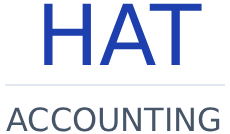As a pharmacy owner, understanding tax deductions is crucial for reducing your overall tax liability and maximizing your savings. From operating expenses to employee benefits, there are numerous opportunities to lower your tax bill. This guide explores key tax deductions for pharmacies and provides actionable tips for taking full advantage of them.
1. Deducting Inventory Costs
Pharmacies incur significant costs associated with inventory, which can be a major tax deduction. The IRS allows pharmacies to deduct the cost of goods sold (COGS), which includes the purchase price of medications, over-the-counter products, and medical supplies. Keeping accurate records of your inventory purchases and sales is essential to ensure you claim the correct deductions.
2. Employee Wages and Benefits
Employee compensation, including salaries, bonuses, and benefits, is a deductible expense. Pharmacy owners can deduct wages paid to pharmacists, technicians, and administrative staff, along with benefits like health insurance, retirement plan contributions, and paid time off. These deductions can reduce your taxable income significantly.
3. Depreciation of Pharmacy Equipment
Pharmacy equipment, such as refrigerators, point-of-sale (POS) systems, shelving, and computers, can be depreciated over time. This means you can deduct a portion of the cost of these assets each year. Additionally, Section 179 allows you to deduct the full cost of qualifying equipment in the year it was purchased, which can lead to immediate tax savings.
4. Operational Expenses
Pharmacies have a range of operational expenses, from rent and utilities to supplies and insurance. These are all deductible. If your pharmacy leases its space, you can deduct rent payments, as well as related operating costs like utilities, maintenance, and property insurance. Keeping detailed records of these expenses is key to ensuring you’re taking full advantage of these deductions.
5. Continuing Education and Professional Development
Pharmacists and pharmacy staff must stay up-to-date on industry developments and regulatory changes. Tuition, seminar fees, books, and other costs related to continuing education are deductible. This is not only beneficial for the financial health of your business but also helps maintain high levels of professional competency in your team.
6. Marketing and Advertising Costs
Promoting your pharmacy through advertising—whether via online ads, print, or community sponsorships—can be deducted as a business expense. Marketing helps your pharmacy grow, and these expenditures can also reduce your taxable income.
Conclusion
Maximizing tax deductions can provide significant savings for your pharmacy. By keeping accurate records and staying informed about available deductions, you can lower your tax burden while investing back into the growth of your pharmacy. Consult with a tax professional to ensure you’re taking full advantage of the deductions available to you.





